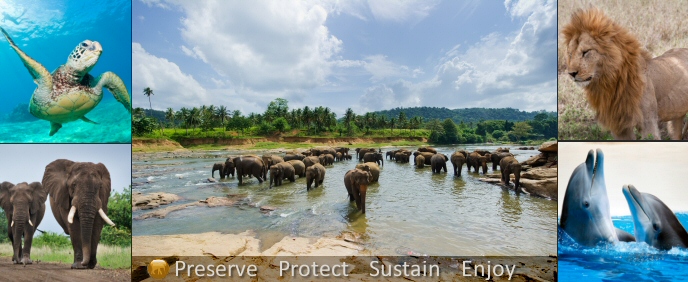
Eco Tours in Kenya - Sustainable Tourism & Conservation Laws
Kenya is one of the most active countries in Africa in the industry of Ecotourism. Home to a very diverse landscape of different ecosystems and unique geological formations, Kenya has been systematically raising its international tourism profile over the past ten years. The laws of Kenya in regard to Ecotourism are not necessarily always in line with the international definitions of Ecotourism, however they often seek to attain the same goals. Since the largest tourism draw in Kenya is-- by far-- lethal and non-lethal safaris, most of the environmental laws regarding Ecotourism in Kenya contain at least some language addressing wildlife conservation. However, Kenya is also a large mineral exporter in Africa, which necessitates laws that address both conservation and use.
One of the most far-reaching pieces of legislation regarding conservation in Kenya is called the Environmental Management and Coordination Act. This creates a framework for the management of not only the environment, but for the ways in which industry can interact with the environment. The act explicitly states that the government of Kenya recognizes the natural environment to be the foundation of the social, economic, spiritual, and cultural advancement of Kenya. The reason tourists need to be mindful of this act is because some of the regulations in it are directly related to the tourism industry. Most notably, there is a provision that states that all Kenyans are entitled by right of birth to a clean, healthy, and productive environment. As such, the people of Kenya have been given a substantial amount of control over their neighboring lands, and this means that almost all tourism businesses are bound by some form of local governance. As a result, a tourist cannot simply go to Kenya and expect to go on a lethal safari wherever they wish, but must instead research what areas allow for this activity beforehand.
The Environmental (Prevention of Pollution in Coastal Zone and other Segments of the Environment) Regulations are another example of how the government approaches environmental conservation. The regulations set down a number of rules for how maritime operators can dispose of hazardous materials. These regulations have actually been a net benefit for the tourism industry in Kenya. They have substantially cut down on the amount of hazardous waste dumping that was going on in the territorial waters of Kenya. This has led to a significant change in the overall health of coastal ecosystems in the country, causing a commensurate rise in off-shore tourism. These regulations are a direct outgrowth of the framework that was put in place by the Environmental Management and Coordination Act.
Tourists to Kenya will find a wide range of activities to engage in during their stay. By far, the largest tourism draw in the country is through the many safari companies that operate within its borders. The lush terrestrial habitat has led to a proliferation of safari companies that offer both lethal and non-lethal safari options, as well as a number of trekking choices. These safari companies often work in concert with local oversight, and an above-average amount of profits are shared between companies and locals. Generally, locals use the land for farming, and therefore have a vested interest in keeping it free of most forms of development and exploitation. With the enactment of the recent coastal regulations, coastal people are now able to exercise the same rights that their inland compatriots have been exercising for some time. Activities along the coast include SCUBA diving, snorkeling, and even charter fishing.
Kenya has been recognized by the international community as the country that is setting the standard for environmental conservation and regulation throughout Africa. Its environmental policies are fairly inclusive, and there is little doubt that tourists visiting the country will have to be mindful of at least some of these policies. While these regulations are fairly broad-reaching, they don't include language or provisions that will be substantially different from the ones that exist in most developed nations. The worst penalties come from the harassment of endangered wildlife and the habitats thereof, and this is not a scenario that the average tourist will find his or herself in a position to worry about.

